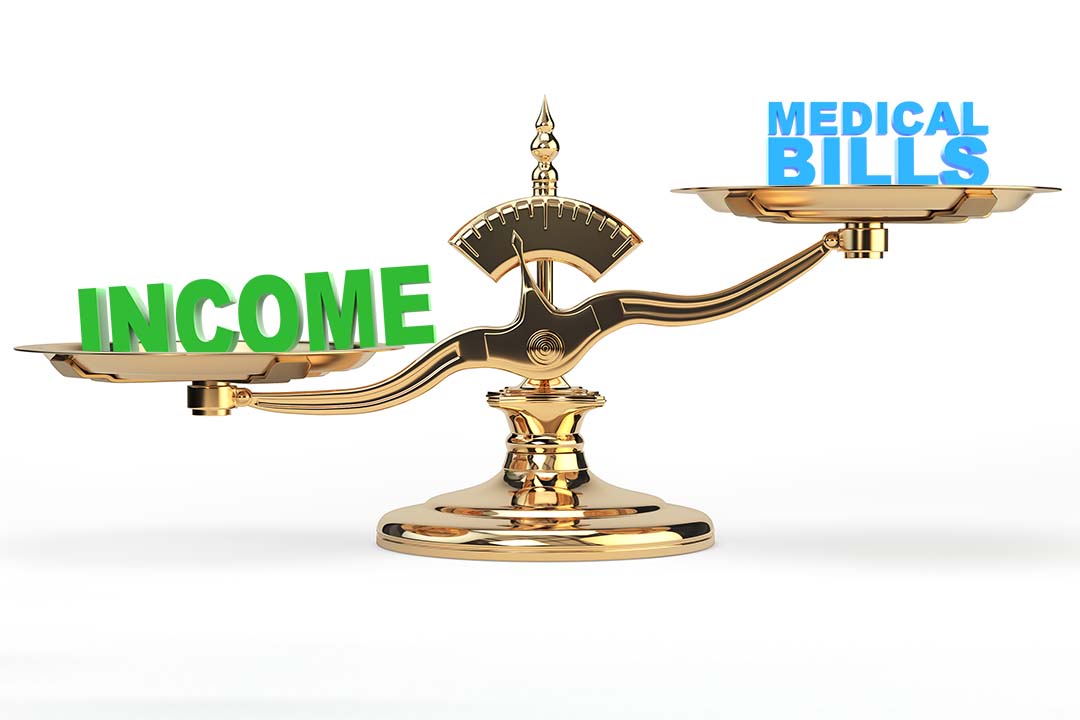
UK Income Protection Insurance
Financial safety should the unexpected happen.
Black Lion - Part of Movo H & L

Compare The UK's Top Insurers
What is Income Protection Insurance?
In the event that an insured individual finds themselves unable to work due to illness or injury, Income Protection Insurance can pay a monthly benefit, typically up to 70% of gross income, subject to policy terms and conditions. This is intended to provide the financial support necessary to cover bills, mortgage or rent, and other living expenses.
There are various types of insurance policies that come under the wider umbrella of Income Protection such as Accident and Sickness Insurance. The different policy types can often be tailored to address the needs of an individual’s circumstances or specific risk factors which may be more common in certain professions.
Compare Top UK Insurers
Different types of Income Protection
The number and range of Income Protection products available in the UK is extensive and new policies to meet the needs of an ever more diverse workforce are coming to the market every year.
Black Lion Insurance can provide advice from qualified advisors on the most suitable products to meet an individual’s need and budget.
Long Term Income Protection Insurance
Some policies can provide coverage up until the retirement age of the policyholder or a specified date usually of five years or more. These policies will generally pay a benefit of up to 70% of annual earnings and provide an extensive financial safety net for individuals wishing to guard against the the financial impact that a serious, long-term illness or injury could cause. Short-term Income Protection can be arranged for periods of less than 5 years and these policies will often have lower premiums but may be less suitable for individuals who wish to mitigate the potential financial impact of a career-ending illness.
Accident & Sickness Insurance
Generally these policies are renewable annually and pay a maximum of 12 months benefit in the event of a valid claim. Because of the shorter term, the policies are not subject to full medical underwriting, although the maximum monthly benefit is unlikely to exceed £2k. Accident & Sickness Insurance is therefore often more popular with self-employed workers who are at a higher risk of suffering a short-term physical injury than a career-ending illness.
Group Income Protection
Group Income Protection policies are designed for businesses who wish to offer a comprehensive benefits package or enhanced sick-pay to at least three employees or more. In the event that an employee is unable to work due to a prolonged illness or injury, the insurer makes a monthly payment to the company who then pass the benefit on to the employee via payroll. Payments can also be used to cover pension and national insurance contributions.
Executive Income Protection
Similar to Group Income Protection where the policy holder is a business, Executive Income Protection can be more suitable for smaller businesses who do not have sufficient number of employees to benefit from Group Income Protection or where the individuals covered are directors. Policies can also cover additional benefits such as pension contributions, car allowances, dividends etc.
Protecting Your Future Income
A person’s ability to earn an income is arguably often one of their most valuable assets. For example, a 30-year-old earning £60,000 per year with a 3% annual wage increase would accumulate over £3.5 million in earnings over a 35-year period. By taking out an Income Protection policy, individuals can help safeguard this significant asset and avoid the potential of financial hardship if they are unable to work due to illness or injury.
With an estimated 2.5 million adults in the UK of working age on long-term sick leave (Office of National Statistics Nov 2022), the risk of experiencing an unwanted break in employment should not be overlooked.
Furthermore, in 2023, Statutory Sick Pay in the UK amounts to only £96.35 per week for up to 28 weeks. For the vast majority of the population this would not be sufficient to cover essential expenses.
Income Protection Insurance can help to ensure that should and illness or injury prevent the policyholder from working, they can focus on getting back on their feet without the stress of being unable to meet their financial obligations.
Given that in many cases, Income Protection policies can cost the equivalent of less than 1% of gross earnings, it is considered by many to represent good value.
Who should consider Income Protection?
Both employed and self-employed professionals can benefit from Income Protection Insurance. However, it’s particularly popular among self-employed individuals, contractors, and company directors who may not have the same employee benefits that traditional employees enjoy. Individuals in traditional employment without comprehensive sick pay benefits might also find Income Protection Insurance to be a cost-effective way to attain greater financial security.
An individual’s personal and financial situation plays a crucial role in determining the need for Income Protection. For those with little or no savings, the prospect of going without an income for an extended period can be incredibly daunting.
In contrast, individuals who have built up substantial savings or own valuable assets might not want to rely solely on their savings in case of illness or injury. In this scenario, Income Protection can provide a reliable income stream to preserve their hard-earned savings and assets if the policyholder makes a valid claim.
How Much Does Income Protection Cost?
For individual policies, there are a number of contributing factors that will collectively affect the cost of a policy’s monthly premium.
The summary below addresses some of the main factors that are considered, together with an indication as to how these factors could affect the cost of an Income Protection policy if all other factors are equal.
Amount of Cover
The lower the amount of insured income, the lower the premiums will be.
Age
Insurers are likely to consider older individuals more likely to develop health issues that will prevent them from working. Therefore, premiums generally increase with age.
Occupation
Higher risk occupations will almost always result in higher premiums, with the most dangerous jobs (i.e. Deep Sea Diver) being considered uninsurable by some providers.
Deferred Period
This is the period of time between the insured individual being unable to work and the policy’s monthly benefit starting to pay out. The longer the deferred period, the lower the policy’s premiums.
Health
Insurers will consider any pre-existing conditions and an individual’s medical history. Depending on the nature or severity of the issues, they may result in a higher monthly premium.
Smoking
Smokers or those who use nicotine products or vape are likely to incur higher premiums.
Indexation
Policies that are indexed against inflation so that the payable benefit increases over time will be more expensive than non-indexed policies.
Policy Duration
A policy that would pay a benefit up until retirement age is likely to be more expensive than a policy which pays a benefit for a maximum of 3 years.
The process of obtaining an accurate quote for Income Protection is not something that can currently be fully automated. While it is possible to provide a preliminary or indicative quote based on the factors above, insurance providers often have secondary questions before providing a final cost for any particular policy.
As Income Protection is a long-term insurance product, it is highly recommended that those considering taking out a policy seek qualified advice and obtain quotes from more than one insurer.
Black Lion Insurance provides specialised advice to address the protection needs of the self-employed, contractors, directors, and businesses.

Policy Comparison
Accident & Sickness vs Income Protection
Answering 'What's the difference between Accident & Sickness Insurance and Income Protection?', this article looks at the key differences, compares example quotes and considers the potential suitability of both policy types for two self-employed professionals with very different occupations and personal requirements.

Policy Comparison
Income Protection vs Private Medical Insurance
An in-depth comparison between Income Protection and Private Medical Insurance, this article looks at how each policy type can help when common medical issues arise.
Income Protection FAQs
From our most commonly asked question "Do I need income protection insurance?" to information on what affects the cost of your policy.
About Us
Black Lion Insurance is a dedicated team of insurance consultants with years of experience in guiding our clients to a solution that meets their specific needs. We specialise in helping both employed and self employed individuals, as well as business owners on a variety of solutions, which range from income protection, keyman and shareholder protection insurance.

